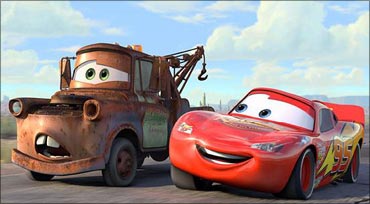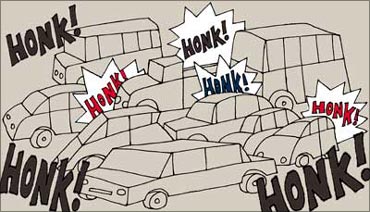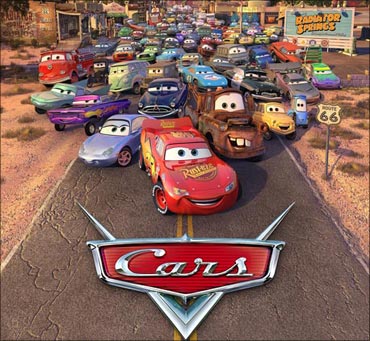 | « Back to article | Print this article |
Coming soon: Cars that TALK to each other!
Coming soon: 'Talking' cars! That's what Italian scientists, who claim to have developed a software that lets vehicles 'communicate' with one another on the road, say.
A team at University of Bologna says that the so-called talking cars wouldn't even require human-like facial features to communicate with another vehicle on the road, the BBC reported.
Similar technology had been used before but this time, cars would be able to 'know' what had happened even kilometers ahead. And, tests suggest it could reduce motorway pile-ups by 40 per cent, say the scientists.
Team leader Prof Marco Roccetti said the system they had developed was different from conventional telematics that sees a radar-type mechanism detect an obstacle on the road in front of a car, which then brakes to avoid a crash.
Click NEXT to read on . . .
Coming soon: Cars that TALK to each other!
"By letting cars 'talk' to each other, we can see what happens kilometres ahead -- whereas current technology, instead, allows cars to perceive an obstacle only when it is physically in front of them," said team member Gustavo Marfia.
The 'talking' is done via acceleration sensors built into cars that trigger an alarm message in abnormal conditions such as when a vehicle is involved in a crash.
When a car in an accident experiences a sudden change in acceleration, this change would be captured by the sensor and alert cars approaching the same spot.
Click NEXT to read on . . .
Coming soon: Cars that TALK to each other!
This alarm could spread down the chain of vehicles in a relay so they could safely stop a long way before they reach the accident scene.
"We have developed an optimal algorithm for multilane, strip-shaped portions of roads such as highways," Roccetti was quoted as saying.
According to Marfia, the system could work two different ways. One would see all cars equipped with a device running the alarm software, and integrated directly into the dashboard or in the Sat-Nav.
Click NEXT to read on . . .
Coming soon: Cars that TALK to each other!
"Otherwise, our application could also run on WiFi-enabled smartphones," he added.
One problem might be that if a car involved in an accident starts communicating with every single vehicle behind it, and they in turn relay it to those following them, the system could become clogged with messages.
To stop the data jam, the team decided on a scheme that selectively sends a message only to those cars which in turn are able to send the signal as far as possible. This is achieved by having all the cars constantly swapping data so they know who is in the best position to pass on the warning.
Click NEXT to read on . . .
Coming soon: Cars that TALK to each other!
"Our app allows cars to stay in constant contact with each other. They read each other. They know the direction and speed that all the other cars are travelling, and they also know their transmitting capacity.
"All this information is updated every second or so, and the frequency is optimised so that it doesn't slow the system down," Roccetti said.
Road tests of the software will be carried out in August 2011 on the streets and motorways of Los Angeles in conjunction with car maker Toyota, say the scientists who have published their findings in the Computer Networks journal.




